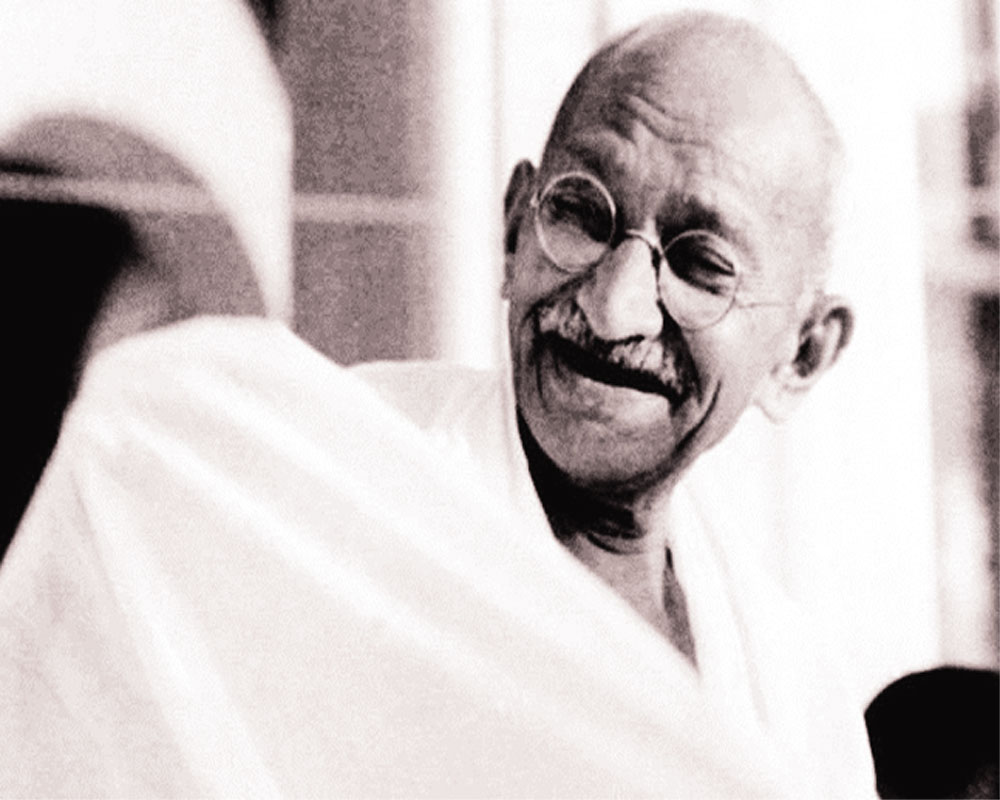The case for arriving at some approximation of a need-based existence and the establishment of the primacy of the principles of truth and non-violence has never been stronger than today
October 2 came and went in India with pro-forma speeches, meetings, messages and celebrations and the usual tributes paid to the life and ideals of Mahatma Gandhi and his leadership of India’s freedom struggle. Worldwide, it was observed as the International Day of Non-Violence, designated as such by a resolution passed by the United Nations General Assembly on June 15, 2007, which asked all member countries to commemorate the day “in an appropriate manner and disseminate the message of non-violence through education and public awareness.â€
Yet, wars rage in Syria and Yemen. Afghanistan, India and Bangladesh are targets of sustained Pakistan-sponsored terrorism. Fundamentalist Islamist terrorism stalks Britain, the United States, France, Germany, Holland and Spain. In India, the levels of both criminal and social — particularly communal and gender-related — violence are at an alarming high. The cases of lynching happening at the slightest provocation or suspicion warrant serious concern. Clearly, the steps taken to counter these and the condemnatory statements, have not helped.
This is perhaps because people’s actions are determined more by forces operating on the ground, collective social, ethnic or religious allegiances and antagonisms, and group and individual interests, rather than received messages. This is particularly so when the lives and conduct of people delivering the latter do not reflect any great commitment to the principles of truth, non-violence, social inclusiveness and simple living, and methods of non-violent resistance that the Mahatma had advocated. In India, Jayaprakash Narayan was the last great protagonist of Gandhian values and ideals, which he blended with his own belief in socialism. Globally, there has been no striking application of Gandhian precepts and methods of resistance after Aung San Suu Kyi’s epic struggle against Myanmar’s military.
As to the ground realities, truth has generally received lip service since the beginning of recorded history and has been defenestrated whenever circumstances demanded. Besides, what appears to be truth to some may not appear so to others because, given conflicting versions of an incident, one is inclined to accept as true the one that fits in with one’s worldview. Thus, while the Hungarian uprising of 1956 was seen by the Soviet Union and its Warsaw Pact allies as a “counter-revolution†that had to be crushed, the overwhelming majority of Hungarians as well as the Western democracies viewed it as a surge for freedom from Soviet colonialism.
Non-violence as a method of conflict resolution has a difficult soil for survival when some countries — Pakistan being the prime example — seek to extend their hegemony over other countries through war and/or state sponsorship of unconventional warfare through terrorism. Equally, the doctrine of non-violence is under serious challenge from ideologies propagating violent revolution as the only means of a root-and-branch change encompassing not only an existing regime but the prevailing fundamental social and economic relations. Marxism is one such ideology with its concept of the proletarian revolution; as are the various nationalist ideologies wedded to revolutionary praxis and forms of Islamist extremism propagating violent jihad. Whatever their differences, each of these rejects non-violence.
Third, the economic universe that Mahatma Gandhi visualised for India is in total conflict with the technology-driven, large-scale production based, market-oriented and consumption-inducing capitalist economy now dominating almost the whole world. His emphasis was on need-based simple living expressed through his oft-quoted statement, “The world has enough for everybody’s need but not enough for everybody’s greed.†Against transnational production and marketing in a world increasingly becoming a global village, Mahatma Gandhi conceived an economic structure, the constituent unit of which was to be the self-sufficient and self-sustaining village that was a unit by itself in a decentralised political system. Local demand was to be met by local production with villagers taking to vocations catering to local needs.
Leaving aside the question of superiority of either system, the establishment of the one that Mahatma Gandhi advocated required the dismantling of the capitalist mode of production, financing and distribution that had developed under British rule. Given the deep roots the capitalist system had struck by the time of Independence, and the powerful connections those at its helm had built up, any such attempt, if seriously made, would have thrown the economy and society into a massive turmoil, crippling both for decades.
Over the years since 1991 when the economic reforms began, market capitalism has grown exponentially, and the consumer culture, spreading on the wings of advertising, has become a dominant influence on society. The goal is ever-increasing consumption and not the fulfilment of needs. But, surely, there is a need for change. Frustration from failure to meet compulsive consumption aspirations is leading to escalating criminal and social violence; the production of enormous varieties of goods and the provisions of services increasingly in demand, is depleting the earth’s resources and emitting greenhouse gases whose disastrous impact in the form of global warming is increasingly manifest. The case for arriving at some approximation of a need-based existence has never been stronger. The same goes for the establishment of the primacy of the principles of truth and non-violence. The effort should be to formulate a strategy for achieving all this by October 2 next year which would be the Mahatma’s 150th birth anniversary.
(The writer is Consultant Editor, The Pioneer, and an author)


























